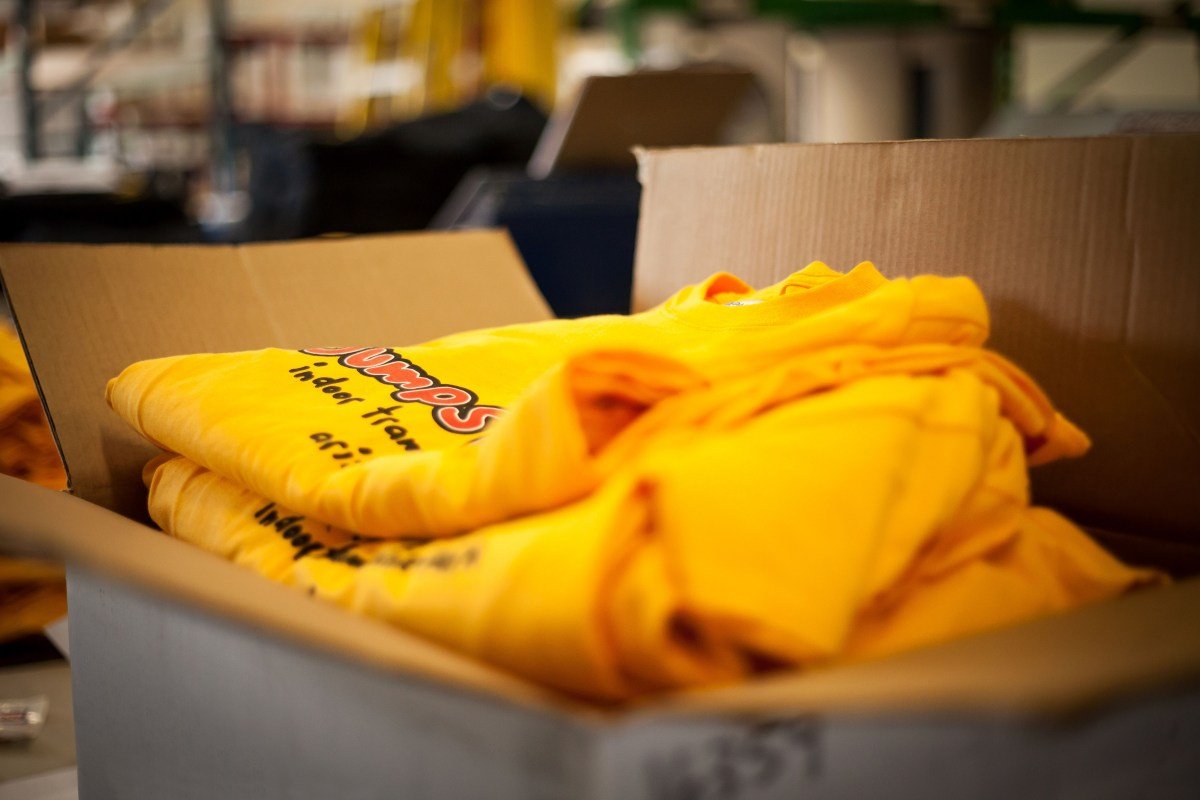The rise of the Internet revolutionized marketing with the ability to personalize items, like clothing, creating a new era of selling merchandise. This trend has been benefitted from and capitalized on by Bizay, a startup specializing in customized merchandise for small and medium-sized businesses.
This Lisbon-based company, which raised a noteworthy $38.6 million (€32 million) Series C in 2020, has now secured an additional round of funding – “C2” totaling €18 million ($19.78 million) – in order to expand its reach into the US market. The round was led by Indico Capital Partners, a previous investor, along with fellow Portugal investors Iberis Capital and Lince Capital.
With this new round, Bizay has received a total funding of €72 million ($79 million). However, when asked about the company’s valuation, a spokesperson chose not to disclose it. However, industry experts estimate that Bizay’s valuation could range anywhere between $180-$220 million.
In today’s market, there is a thriving demand for customized merchandise, as companies are keen to provide their customers with branded merch. Technological advancements have made it easier for businesses to fulfill these demands. As of 2022, the global custom apparel market (specifically clothing) was valued at over $48 billion and is expected to grow to $70 billion by 2028. The market for customized t-shirts alone is projected to be worth over $3 billion by 2025.
According to Bizay co-founder Jose Salgado, their secret sauce is their supply chain system that combines merchandising, packaging, apparel, and a wide range of customization options. They have managed to reduce costs and increase the number of product categories they can serve, even offering customized items like company-branded watches.
“We are seeing a growing trend for customization across various segments. It is a way for individuals to express themselves,” says Salgado.
The company has perfected its production process and can cater to small, medium, and large quantities, including a recent order of 50,000 custom t-shirts placed by the Texas Broncos. As Salgado explains, “We have invested a lot of effort into becoming competitive in small quantities, as well as medium and large ones. Through extensive research and development, we have found ways to scale our production. This is an industrial process, and there are significant setup costs. But by enabling our suppliers to work on several orders simultaneously, we have achieved significant cost savings.”
Bizay does not own any factories or machines nor does it maintain stocks of its own. Instead, it collaborates with a complex value chain to deliver products, carefully choosing the best suppliers for each step of the process. This optimization ensures a high-quality, cost-effective final product.
While Bizay caters primarily to SMEs, there is also a growing e-commerce opportunity through partnerships with influencers. In fact, the #TikTokMadeMeBuyIt hashtag has gained over 71 billion views, highlighting the popularity of influencer marketing. Additionally, for music fans, customized merchandise is now just a click away. For instance, fans of Sheffield band “Bring Me The Horizon” can purchase personalized t-shirts by connecting their Spotify account or email to the band’s merchandise website.
Bizay faces competition from various print-on-demand shops like Printful, Printify, Gelato, Gooten, and Art of Where. However, Salgado argues that these companies focus on a single technology and are vertically integrated, thus limiting their production capacity. In contrast, Bizay offers an extensive range of customization options and is independent of quantity and specific requirements.
In an accompanying statement to the raise, Stephan Morais, Managing General Partner at Indico Capital Partners, says, “Bizay currently has a scale and reach that is unparalleled in the customized products industry, specifically in supply chain partnerships and agreements in Europe and South America. We believe this can be replicated in the US market, and we are backing the team again to execute that expansion.”
While customized company merchandise is the primary focus of Bizay, there is a growing demand for “fail memorabilia,” products associated with companies that went out of business. For example, items from failed brands like Silicon Valley Bank have become popular on eBay, with listings for $1,000 SVB-branded blankets and a $249 wine and cheese board with the SVB logo. Who knows, perhaps in the future, Bizay’s Series D will involve buying out failed companies and launching their own store for these unique items.








